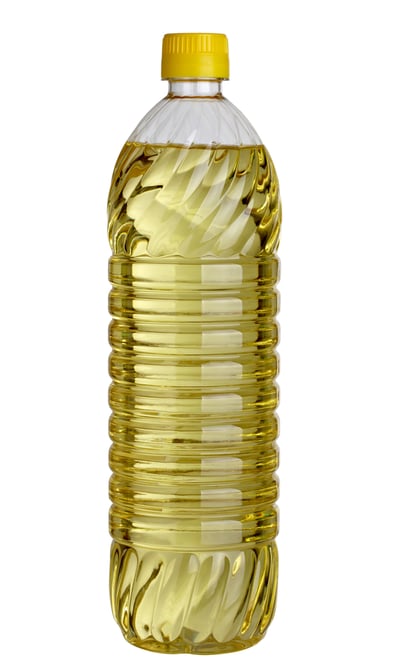
Have you ever made a recipe that called for vegetable oil, and in the midst of pouring the oil into the measuring cup, you’ve thought, “Hmm… I wonder if I could use something healthier in place of this?” As an avid baker, I run into this question a lot. [Spoiler alert: I no longer even keep "vegetable oil" in my house, so you can see where this discussion is going…]
The Short Answer: Yes, You Can Swap Canola Oil in For Vegetable Oil
The short answer is, yes, you can replace vegetable oil with a number of different options, including canola oil.
In all honesty, as a baker or chef you can really do anything you want. That's your artistic initiative! Swap out your vegetable oil for olive oil, safflower oil, virgin coconut oil, or many more options. Just be aware of what you’re doing and how it’s going to change your recipe and the final flavor.
Vegetable oil has almost no flavor or color. That’s actually why so many chefs and bakers like it. It doesn’t affect the final color or taste of their finished product. So you need to be careful about what oil you switch it out for, to make sure that it doesn’t negatively affect your recipe. Oils like coconut, avocado and olive oil will all have a lot of flavor and can negatively affect sweet foods or positively affect savory foods -- but it all depends on what flavors you're going for!
The Long Answer: Canola Oil Already Is Vegetable Oil
Have you ever wondered what’s actually in vegetable oil? You’re not alone. Surprisingly, many people outside of the oil industry don't actually know what vegetable oil is made up of.
Next time you go to the grocery store, flip a vegetable oil bottle over and look at the ingredients. For the most part it's going to be made up of soybean oil. It may also be mixed with corn oil, cottonseed oil, or (ding ding ding) CANOLA OIL! So in fact, what's inside your bottle of vegetable oil may already be canola oil, though more likely it's 100% soybean oil.
How can they use any and all of these different oils inside a bottle of vegetable oil? It all has to do with the ingredient listing. The title "vegetable oil" on the front of the bottle is more of a marketing term that names a category of oils. The oil inside can be soybean, canola, corn or cottonseed -- sometimes one, sometimes all. These oils are so similar (all refined, all very bland tasting and light colored) that they're easy to exchange for one another without consumers knowing the difference. And they're all on the ingredient list on the bottle, so they can swap between the oils listed as they want to.
Almost always, vegetable oil going to be made up of the cheapest commodity seed oils available and is often full of GMOs and solvent expelled unless otherwise labeled. 
Canola oil is one of the easiest things to swap vegetable oil (assuming it's soybean) out for because a) it also has a mild taste and color and b) it’s in the lower pricing range so that you’re not making a huge cost leap. If you need a non-gmo oil, look for expeller pressed non-gmo canola oil, which is really popular right now. That would be considered a non-GMO vegetable oil if you needed one.
This is a really feasible swapping to make and still not have to change your recipe; the flavor profiles of each oil are very mild and light in color, so you won’t see a difference in your finished product. The smoke points of these oils are also pretty similar (within about 50°), so that shouldn’t affect your product too much either-- just be aware of the difference.
What's Healthier?
On the health scale, canola oil is usually considered step up from soybean oil. Many actually claim canola oil to be one of the healthiest oils available in the world right now -- but this is hotly, hotly debated by others. So, what I will stand up for, is that canola oil is better than for you than many other types of oils, particularly if you get the non-GMO version.
The healthiest oils that are most in demand by food manufacturers today are 1) Extra Virgin Olive Oil, 2) Expeller-Pressed Non-GMO Canola Oil, 3) Expeller-Pressed Non-GMO Safflower Oil and 4) Expeller-Pressed Non-GMO Sunflower Oil.
No matter what you believe about the healthiest oils, we can agree that exchanging vegetable oil (soybean, cottonseed or corn oil) for canola oil is a reasonable thing to do. It’s an easy change, and won’t affect your final recipe. Happy cooking!
Want to get information like this delivered to your inbox? Subscribe to this blog.
Topics: Canola Oil, Quality Control













